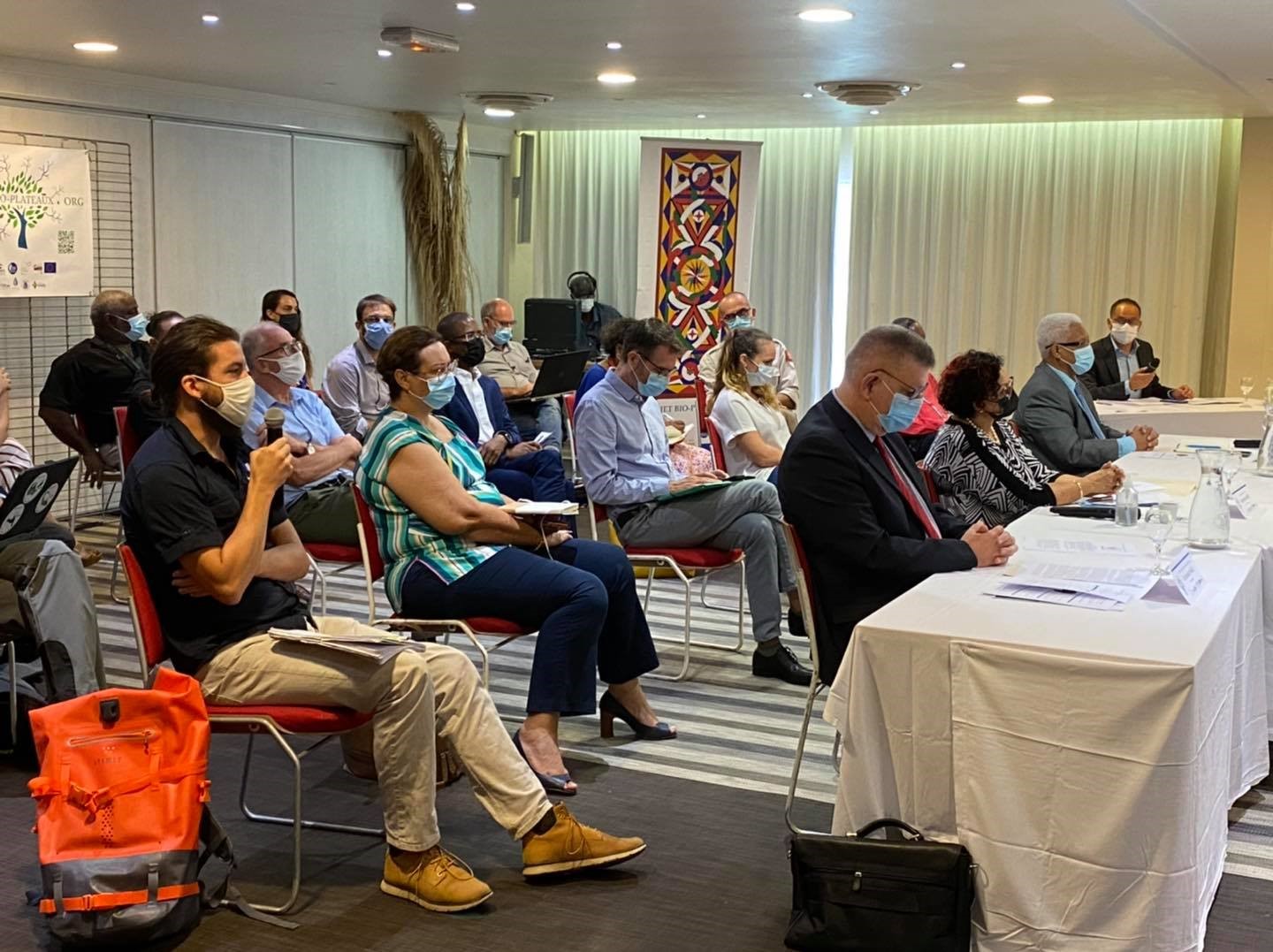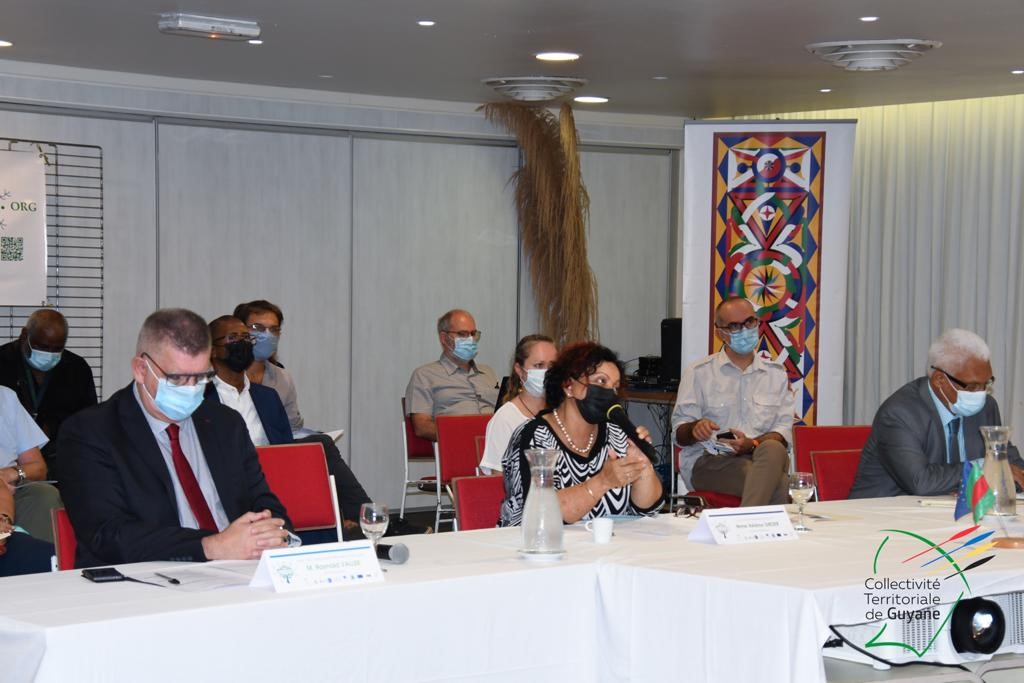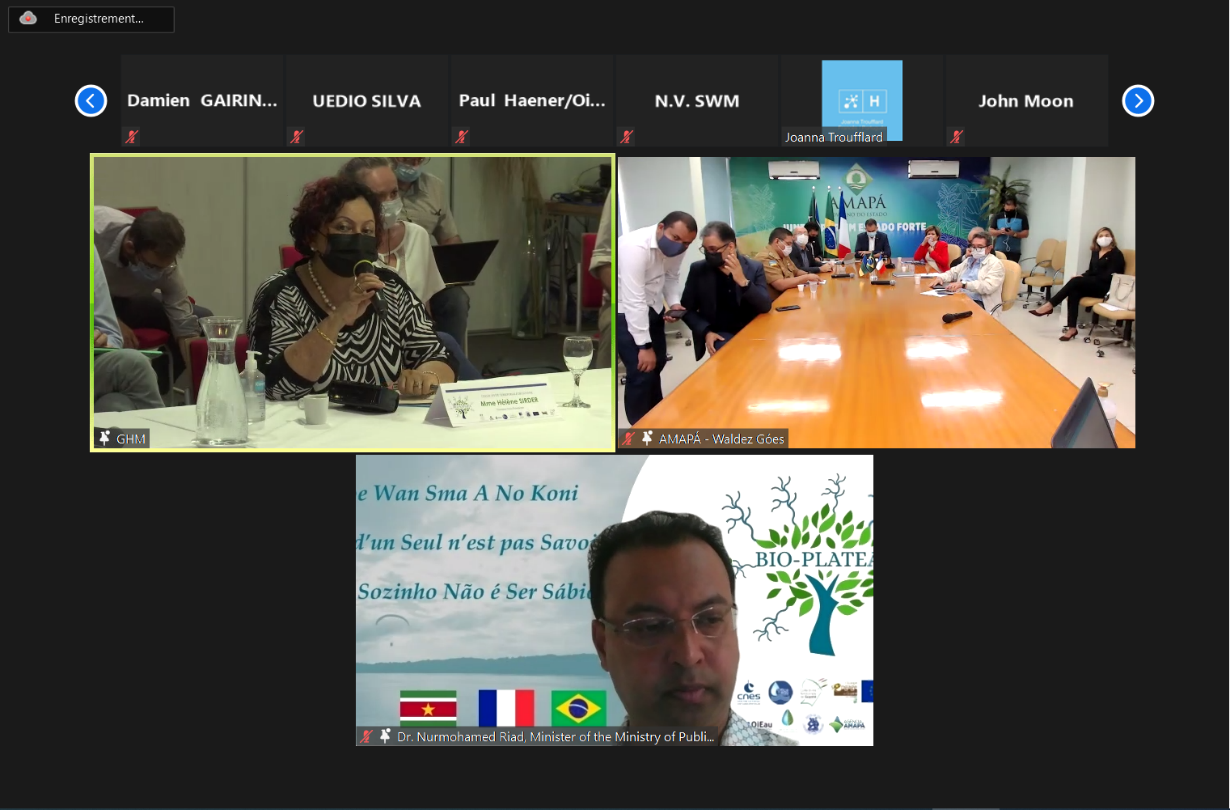
Launch of the BIO-PLATEAUX paltform, Grand Hôtel Montabo, Cayenne on 26 February 2021. © OEG
More than 80 participants attended -for the majority online - the launch of the BIO-PLATEAUX platform on 26 February. This platform aims at increasing knowledge sharing on water and biodiversity on the Maroni and Oyapock river basins, shared between Suriname, French Guiana and the State of Amapá in Brazil.
Authorities from the three countries attended the event: the governor of the State of Amapá and State secretaries from Brazil, Minister of Public Works and representatives of the Ministry of Foreign Affairs and Natural Resources of Suriname, and representatives of the Territorial Collectivity and Committee for Water and Biodiversity of French Guiana.
This official launch was an occasion for the three countries to reaffirm their commitment to the protection of their common natural heritage.
“Our joint efforts are bringing forward the concept of the Blue Economy, an idea that, together with the concept of Green Economy, allows us to take into account ecosystem services for the benefit of human development on our shared river basins. It is one of my strongest wishes for the future of this project, and I have strong hope that we will, despite the pandemic, move faster and go even further towards these goals, for the benefit of our populations.” Said Patrick Lecante, President of the Committee for Water and Biodiversity of French Guiana.
The platform was developed with funding from the European Union. It is available in English, French and Portuguese and has been developed following a participatory approach: around 50 organizations in the three territories were solicited to give feedbacks. The documentation section already contains more than 400 references on water and aquatic biodiversity, it gives a quick access to numerous pieces of legislation and an overview of which organizations are responsible for managing water in the countries. More than 5,600 sources of data on water and biodiversity have already been registered in the BIO-PLATEAUX platform. The valorization of this raw data is made thanks to tools for decision-making (maps, dashboard or hydrological bulletins).
Hélène Sirder, First Vice-President of the Territorial Collectivity of French Guiana mentioned the strengths of this digital tool: “The BIO-PLATEAUX platform shows that digital technology is becoming a powerful lever to promote cooperation. Giving access to knowledge will enable external funders and organizations to better understand the realities of our territories. The platform is also a powerful tool for populations to take ownership of the new concepts arising in the field on environmental protection.”

From left to right: Raynald Vallée – General Director for territories and seas of French Guiana, Hélène Sirder and Patrick Lecante ©CTG
Riad Nurmohamed, Minister of Public Works of Suriname reaffirmed the utility of the platform for the Ministry: “I recommend to continue working as we have been doing since the beginning of this project. We are happy to see that thanks to this platform, people, communities and researchers can easily find qualitative information online. […] We already started to use the BIO-PLATEAUX platform at the Ministry.”

Launch of the BIO-PLATEAUX platform, Grand Hôtel Montabo, Cayenne, 26 February 2021. © OiEau
BIO-PLATEAUX is moving forward the establishment of a transboundary Observatory on water and biodiversity. The project also works in the broader Amazonian context: the day before the launch, on 25 February, the International Office for Water (France), BIO-PLATEAUX project coordinator, signed a memorandum of understanding with the Amazon Cooperation Treaty Organization (ACTO), opening up the perspective of a stronger cooperation with the Amazonian Regional Observatory.
Antônio Waldez Góes da Silva, Governor of the State of Amapá in Brazil recalled that BIO-PLATEAUX is an example of successful international cooperation in the field of the environment: « The COP-26 will be taking place at the end of the year, and BIO-PLATEAUX fully demonstrates that a strong commitment between three different countries can be achieved in a region which faces lots of challenges. Environmental commitment is possible between the authorities, but also between academics and citizens on each side of the borders.”
BIO-PLATEAUX is first and foremost a project built by the many partners of the three territories, and responding to their needs. Thanks to this platform, and also to future educational activities for schoolchildren and young people, the project has the willingness to strengthen ecological awareness among populations.

